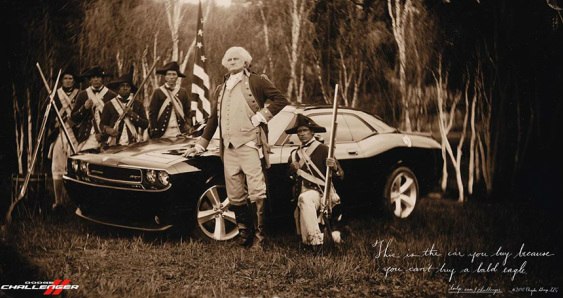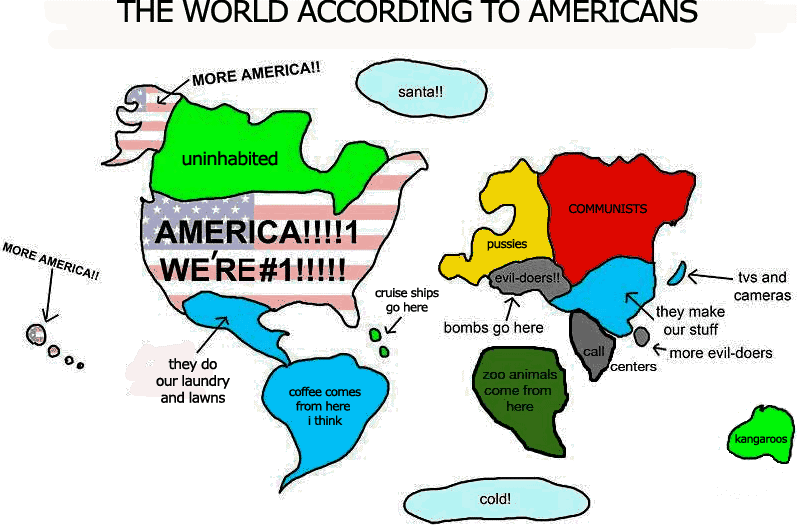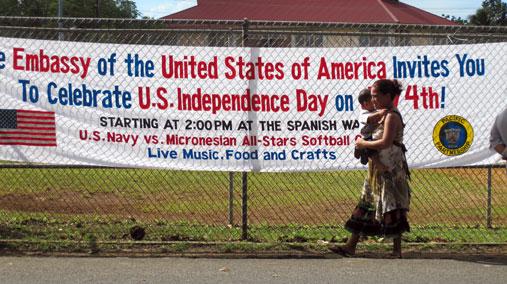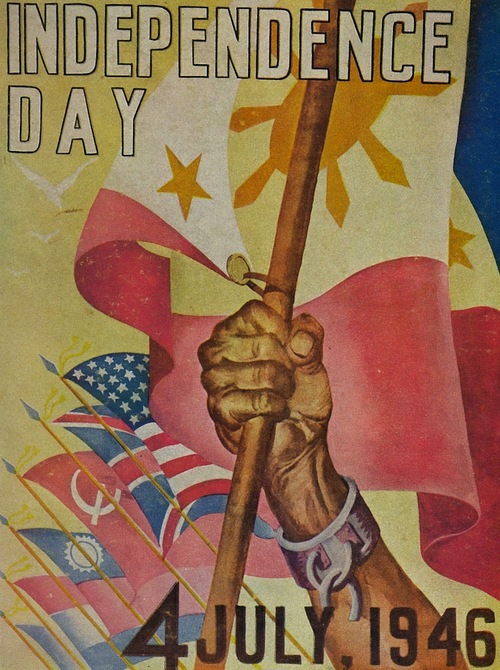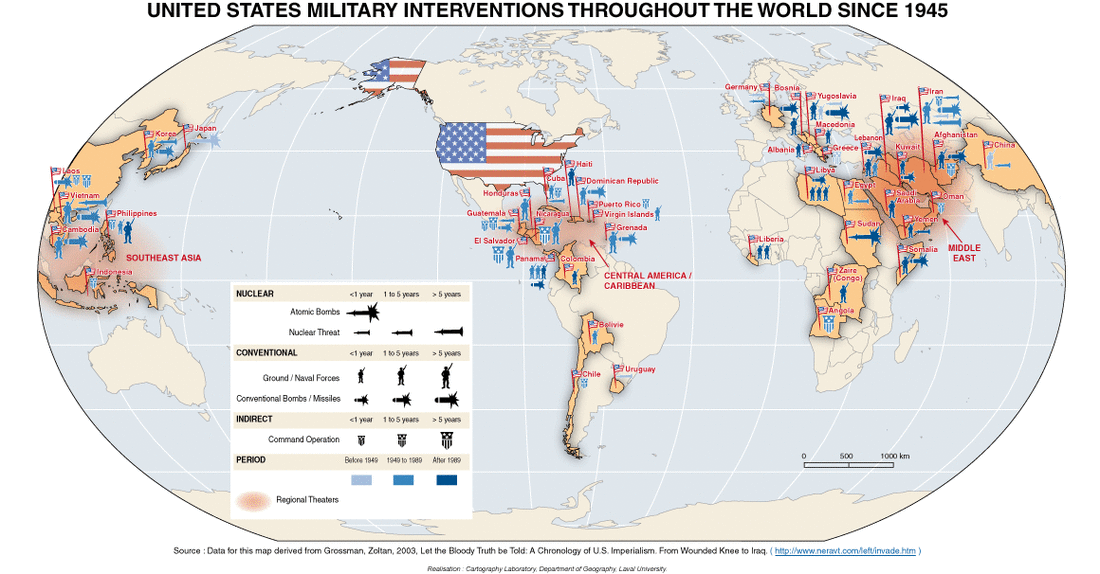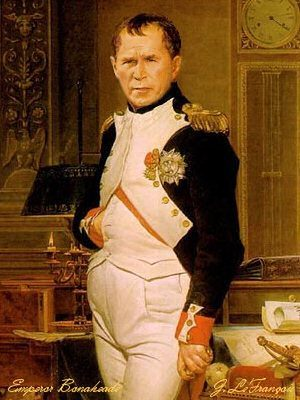Scramblin' thru... the American Empire
Now it's OUR turn...
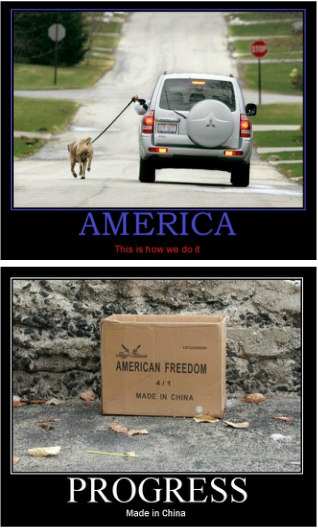
"Only in America do we buy hot dogs in packages of 10 and buns in packages of eight."
"Only in America do we order double cheese burgers, large fries, and a Diet Coke."
"Only in America do drugstores make the sick walk all the way to the back of the store to get their prescriptions while healthy people can buy cigarettes at the front."
OK, world. Take your cheap shots. But, in case you haven't noticed, we've been building quite a little "empire" over on our side of the pond. Sure it's fallen on some hard times... like the enslavement thing... the disenfranchisement thing... the anti-immigration thing... but we've done a lot of good things, too. You don't see Hitler running around anymore, do you? And how about the Kardashians? We invented them.
So, get your fill of American-bashing... because this whole "Freedom" thing seems to be catching on.
"Only in America do we order double cheese burgers, large fries, and a Diet Coke."
"Only in America do drugstores make the sick walk all the way to the back of the store to get their prescriptions while healthy people can buy cigarettes at the front."
OK, world. Take your cheap shots. But, in case you haven't noticed, we've been building quite a little "empire" over on our side of the pond. Sure it's fallen on some hard times... like the enslavement thing... the disenfranchisement thing... the anti-immigration thing... but we've done a lot of good things, too. You don't see Hitler running around anymore, do you? And how about the Kardashians? We invented them.
So, get your fill of American-bashing... because this whole "Freedom" thing seems to be catching on.
Love it or Leave it (but please love it)...
The controversial term "American Empire" refers to the political, economic, military, and cultural influence the U.S. has had on the world. The concept of an American Empire was popularized in the aftermath of the Spanish-American War in 1898. Proponents point to its capitalism and an aggressive foreign policy.
Some trace U.S. imperialism back to President Thomas Jefferson's Louisiana Purchase or the displacement of Native Americans (I suspect that one's gunna haunt us forever...). Another example given is the military occupation and reconstruction of the South after the Civil War. Numerous U.S. foreign interventions, ranging from early actions under the Monroe Doctrine to recent interventions in the Middle East, are often described as "imperialistic".
Columnist Charles Krauthammer argued that Americans should face up to their responsibilities as the undisputed masters of the world. He said, "No country has been as dominant culturally, economically, technologically, and militarily in the history of the world since the Roman Empire." British historian Niall Ferguson agreed, pointing out that the Roman, British, and American Empires have all had positive and negative aspects. Ferguson noted that the positive aspects of the American Empire will, if it learns from its mistakes, greatly outweigh its negative aspects.
The fear is, however, that we all know what happened to Rome...
Some trace U.S. imperialism back to President Thomas Jefferson's Louisiana Purchase or the displacement of Native Americans (I suspect that one's gunna haunt us forever...). Another example given is the military occupation and reconstruction of the South after the Civil War. Numerous U.S. foreign interventions, ranging from early actions under the Monroe Doctrine to recent interventions in the Middle East, are often described as "imperialistic".
Columnist Charles Krauthammer argued that Americans should face up to their responsibilities as the undisputed masters of the world. He said, "No country has been as dominant culturally, economically, technologically, and militarily in the history of the world since the Roman Empire." British historian Niall Ferguson agreed, pointing out that the Roman, British, and American Empires have all had positive and negative aspects. Ferguson noted that the positive aspects of the American Empire will, if it learns from its mistakes, greatly outweigh its negative aspects.
The fear is, however, that we all know what happened to Rome...
|
After World War II, the U.S. gave independence to many of its territories, like the Philippines, Micronesia, the Marshall Islands, and Palau. (Guam and Puerto Rico remain under U.S. control.) All still have U.S. military bases within their territories today.
|
|
The U.S. has military bases in over 40 countries, which some argue is America's version of a "colony". Pentagon figures show that there is a U.S. military presence in 132 of the 191 member states of the United Nations. (To be perfectly honest, I didn't even know there WERE 132 countries in the world...)
|
|
The "Bush Doctrine" is a phrase used to describe various related foreign policy principles of President George W. Bush. The phrase initially described the policy that the U.S. had the right to secure itself from countries that harbor or give aid to terrorists, which was used to justify the 2001 invasion of Afghanistan.
Later the doctrine came to include additional elements, including the controversial policy of preventive war, which held that the U.S. should depose foreign regimes that represented a potential or perceived threat to its security. It also is a policy of spreading democracy around the world, especially in the Middle East, and a willingness to pursue U.S. military interests in a unilateral (by itself) way. However, the whole "with us" or "against us" thing didn't sit too well with, well, the rest of the world. |

